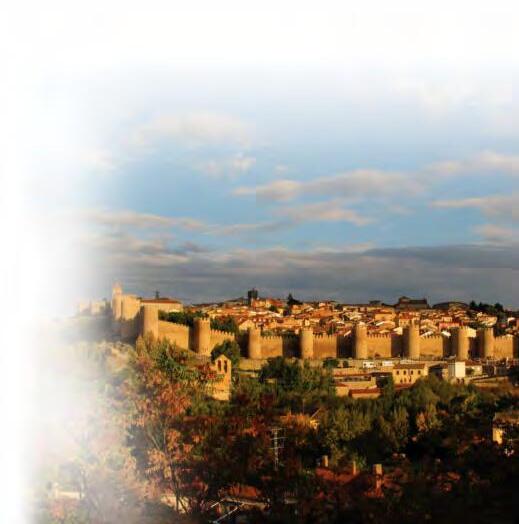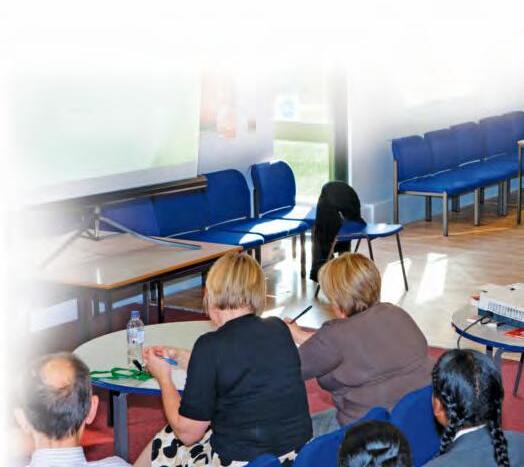
3 minute read
Sociology
Exam Board: AQA
Head of Subject: Ms Begum
Entry Requirements:
Any combination of 6/5/5 in English
Literature, English Language and one Humanities subject. Or: 6/6 in English Language English
Literature if no Humanities subject taken.

What will you learn in Year12?
Students will examine types of family households, the changing concept of childhood, and how the family functions. In addition study also includes the changing demographic makeup of the UK combined with government policies with regards areas such as welfare and marriage. Students will also explore changes in the education system, taking a critical perspective on the differential achievements of different social groups (gender/ethnicity). In addition to this, students will look at the effect of educational policies on the impact of and experience and access to education.
Students will also examine the different research methods and explore them within the context of the Education module.
Which modules will you take?
Unit 1: Families and Households.
Unit 2: Education with Research Methods.
What will you learn in Year13?
Students will learn about the role the Media plays in the 21st century western world and around the globe. Students will also explore the relationship between ownership, control and globalisation. On top of this, they will analyse how the media represents different social groups (age, gender, ethnicity) and the impact this has on prejudices and discrimination.
The second topic students will learn about is Crime and Deviance. They will look at the nature of deviant behaviour and how it should be dealt with. Students will learn to evaluate the different approaches to tackling crime and the use and accuracy of recording crime.
Which modules will you take?
Unit 3: Media
Unit 4: Crime and Deviance with Sociology Methods. Sociological Theory.
Where will this course lead?
The Guardian Newspapers Careers Office state that Sociology students are found in amultitude of occupations including Social Services, Criminal Justice, Government and Counselling. The UK Quality Assurance Agency states sociological skills include the ability to judge and evaluate evidence and understand complex situations.An excellent subject for professional careers.
Exam Board: AQA
Head of Subject: Mrs S Ruiz
Entry Requirements: Grade 6 or higher at GCSE Spanish.
What will you learn in Year12?
Students examine issues within two main topics: Current Trends and Artistic Culture in the Spanish-speaking world.
Students will develop their abilities to communicate in written and spoken Spanish and deepen their understanding of the cultures of the countries where Spanish is spoken.
What will you learn in Year13?
Year13 topics include Multicultural Society, Social Issues, Politics and Immigration.
Students research and debate topics and also study two books, Las Bicicletas son para el verano by Fernando Fernán Gómez and La casa de Bernarda Alba by Federico García Lorca, as well as the film El Laberinto del Fauno by Guillermo del Toro.
We encourage students to read and listen to as much Spanish as possible and they also have weekly sessions with the Language Assistant.
Which modules will you take?
Unit 1: Listening, Reading and Writing
Unit 2: Writing
Unit 3: Speaking
Where will this course lead?
Of all subjects, languages lend themselves most readily to combination with other disciplines. Job prospects are excellent for language graduates. Applicants with knowledge of languages are much sought after by companies operating in global markets, especially travel and tourism, sales and marketing, commerce, finance, industry and the media.
Exam Board: Edexcel
Head of Subject: Mr A Midgley
Entry Requirements: Successful applicants will gain a majority of A grades for Attitude for Learning in the first term at Sixth Form and have the confidence of teaching staff that their attainment will not drop below a C grade during the year. A letter of application will also be required.
What is the EPQ?

The Extended Project Qualification (EPQ) is a course running between NovemberNovember, and operating outside of a student’s normal A Level curriculum.
Entry onto the course is contingent upon a very successful progress check in the Christmas term, and a successful letter of application.
Those who qualify will write a 5,000 word dissertation or investigation/field study; or produce a performance (musical or dramatic) plus a 1,000 word essay rationale; or an artefact (using resistant materials, textiles or others) plus a 1,000 word essay rationale.
Support is provided by whole cohort seminars from the start of January, and individually supervised tutorials with a dedicated member of staff.

How is it assessed?
The main project is assessed in its own right, along with skills applied through the process, for example presentation, referencing, research, planning, and self-reflection.
The final EPQ comprises the central project, a bibliography and activity log (representing the student’s academic journey), and a record of presentation.
Why is it useful?
The EPQ is the first and only opportunity for FE students to choose their own, specific, area of study -anything from time travel to terraforming, Tudor history, or treatmentsfor diabetes. The topic can be anything the student wants.








